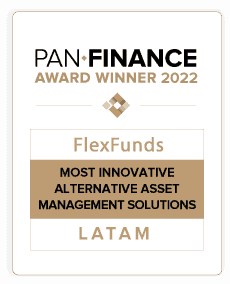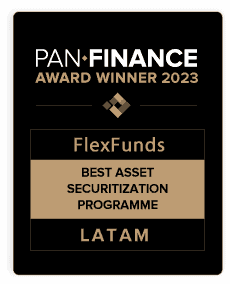- This article delves into the characteristics of exchange-traded funds (ETFs) in the stock market.
- It is primarily aimed at financial professionals and investment managers looking to explore new instruments offered by the ETF sector.
- FlexFunds solutions enable managers to securitize ETFs or any listed investment portfolio efficiently. Contact us for more information!
In recent years, ETFs have gained a strong foothold in global markets, enjoying growing popularity.
Since their introduction in the 1990s, these instruments have evolved from niche options to some of the most popular, disruptive, and widely discussed product innovations in asset and wealth management.
They originated from a Toronto Stock Exchange initiative to launch listed products replicating stock indices, aiming to provide managers with straightforward access to multiple stocks without relying on traditional investment funds or derivatives markets.
Since 2000, the ETF market has experienced extraordinary growth. In 2023, total assets managed in ETFs reached $6.7 billion in the United States and Europe, with a compound annual growth rate of approximately 15% since 2010, according to Oliver Wyman. This figure nearly triples traditional investment funds.
The ETF market has experienced extraordinary growth in recent years. The total assets managed in ETFs have reached $6.7 billion, increasing since 2010 at a compound annual growth rate of 15%, which is three times that of traditional funds.
Why have ETFs become so popular? Understanding their function is key. ETFs blend the best features of traditional investment funds and publicly traded stocks.
ETFs are investment funds whose main characteristic is that they trade on secondary securities markets. This allows for the buying and selling of ETF shares on a secondary market, unlike traditional fund shares that are subscribed or redeemed at their net asset value, which is calculated at the end of each session.
Like other investment funds, ETFs can invest in a wide range of assets, such as indices, commodities, or emerging markets.
Initially, ETFs were index funds that often replicated the composition and performance of a benchmark index (fixed income, equity, commodities, currencies, etc.).
Their evolution has also led to new varieties, such as inverse ETFs (which replicate the inverse performance of an index) or leveraged ETFs (where index gains or losses are magnified according to the degree of leverage).
Characteristics and advantages of including ETFs in your portfolio
ETFs have enabled managers to use a flexible, transparent, and highly versatile instrument to adapt their portfolios in complex times, increasing diversification amid intense uncertainty.
Investment fund characteristics
Like any other investment fund, ETFs are collective investment institutions that can invest in various asset classes and financial instruments. They are characterized by maintaining a common fund of the participants managed and represented by a Management Company.
Publicly traded fund characteristics
Like equity securities, ETFs trade on the market and can be bought and sold at any time, adding liquidity, immediacy, and transparency. This also implies greater flexibility, similar to other options like FlexFunds’ FlexPortfolio.
ETF shares trade in real-time in the exchange-traded funds segment of the stock exchange, with entities promoting product liquidity.
The applicable tax treatment for ETFs is similar to that of stocks, so capital gains are generally not subject to withholding in most jurisdictions.
Accessibility
ETFs allow acquiring shares with limited and relatively small capital, making them accessible.
Diversification
ETFs offer the opportunity to participate in the performance of major markets without investing in each security comprising the reference indices.
Dividend access
ETF participants can receive dividends distributed by the reference index, depending on the type of ETF.
Risks to consider
ETFs, like any other investment asset, come with risks that both managers and investors should consider to maximize their positions.
Market risk
ETFs replicating equity indices primarily assume market risk. Except for those replicating fixed-income indices, which are a minority, they present high volatility and are subject to market fluctuations.
ETFs thus balance portfolios toward higher risk.
Price and net asset value differences
Buying and selling operations sometimes occur at prices different from the net asset value published by the stock exchange because specialists place buy and sell orders with a spread.
Price differences are typically small, with slightly higher purchase prices and slightly lower sale prices.
There is no mandatory delivery of the KID
It is advisable to consult the Key Information Document (KID) first. However, investor information obligations for ETFs are lower than for traditional funds, and the KID is only provided upon explicit request.
Expenses affecting expected return
Management and deposit fees are generally lower than those for traditional investment fund participants, but managers must consider two types of expenses when estimating expected returns for an ETF.
First, the ETF’s own management and deposit fees, and second, intermediary fees for depositing shares (buy/sell, deposit, dividend collection fees, etc.).
Other risks: credit and exchange rate risks
Investing in ETFs involves market risk, counterparty credit risk, and exchange rate risk if applicable, with the possibility of incurring losses.
As with any financial instrument, ETFs have pros and cons, so it’s always recommended to consult specialists. If you are a portfolio manager looking to securitize ETFs, FlexFunds solutions can be a more cost-effective option than other market alternatives. Contact one of our specialists for more information.







